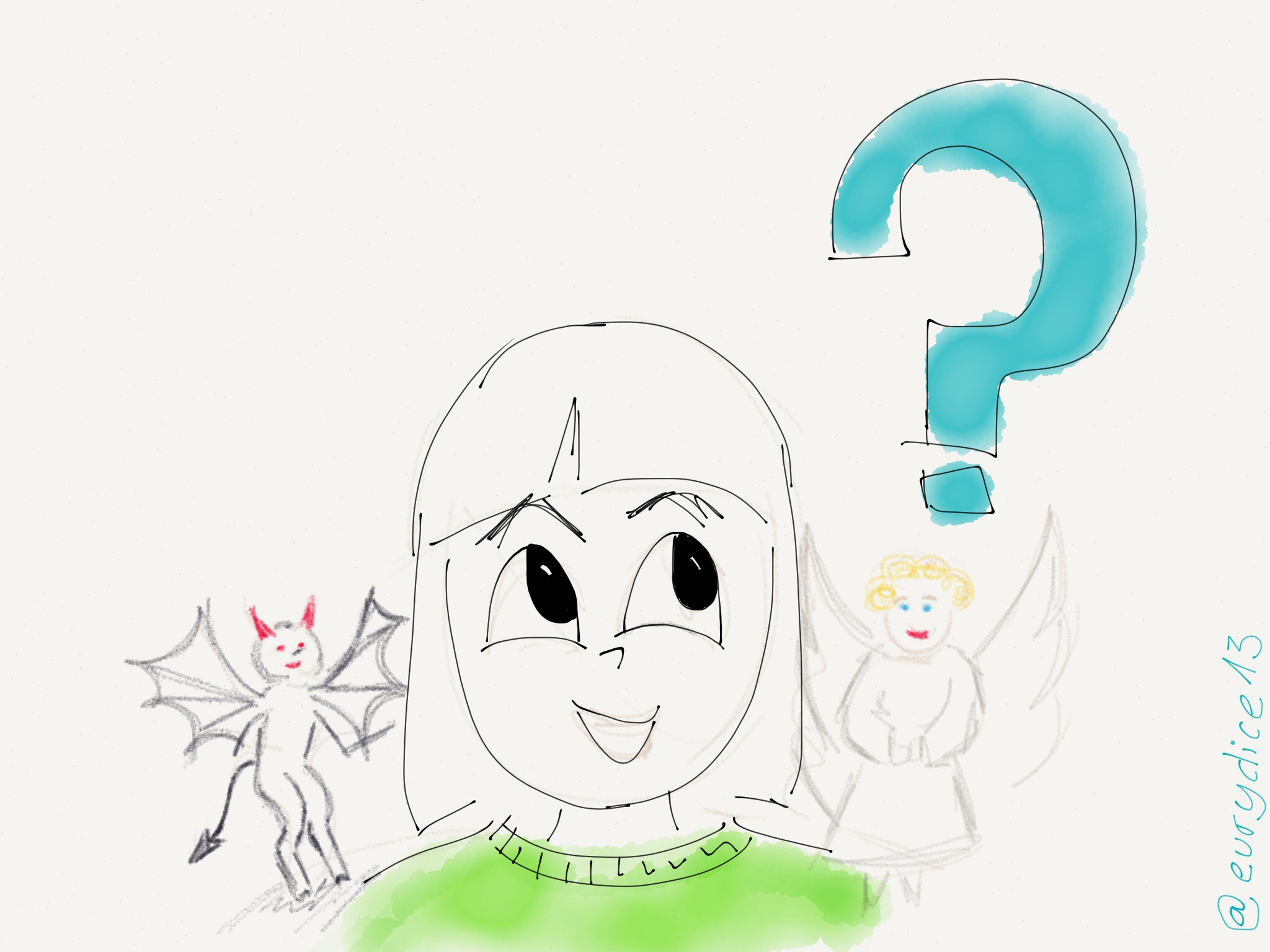What makes someone an expert?
A wise woman once told me that you are an expert “when others come to you for answers”.
Well. It does take a little bit more: such as the ability to answer questions, repeatedly, correctly, memorably. There is a requirement to educate, surprise and spread knowledge and skills. Do that often enough, and at some point you’ll realise that others think of you as an expert. Therefore you are.
Man up, accept it, stop smiling and blushing like a teenager, and just keep on doing what you’re doing anyway. Nothing’s changed, I promise. You’re just the woman (or man) with the answers. For now.
Contrary to Descartes’ “Cogito ergo sum”, thinking you exist / are an expert, does not make you one. Because it is Sartre’s “others”, the proverbial hell, that actually creates you an expert.
You can no longer walk into a room and say “I’m an interior decorator” if you don’t have a portfolio, website, and linked in endorsements to prove it. Social proof is required, and these days we look for it online.
Which has caused a proliferation of sites, profiles, portfolios, and other similar soap boxes of undifferentiable worth. The internet is replete with hundreds of self-proclaimed leaders, coaches, foodies, bakers, makers, seamstresses, fashion bloggers, stylists, interior decorators, ux architects, and more.
Often all they’ve done is redecorate their bathroom, dress their best friend for a wedding, make a pillowcase, bake some cupcakes once, or give a pep talk to a friend.
It’s not that these people are frauds. It’s that we, the web and brand designers who create their online identities, (when we do) are partially responsible for putting them on the map in their blowfish bersion. All puffed up. They are our clients. We do what they pay us to do, we present them in the best light. But should we?
Should there be ethics in creating a website?
What I love about the internet is what may spell its demise some day soon. The lack of ethics, of validation, of accreditation, of certainty in someone’s abilities. It is a universal indiscriminatory soapbox that welcomes everyone. All sizes, all budgets, all ideas. You can find anything online. (thanks Google). You can find anyone. You can watch anything (well, if David Cameron lets you).
And that means that anyone can post anything.
I could fabricate a brand, call myself an expert in…. dressmaking, and get clients. Just like that. From a website. I would of course hire a good web designer to set up a nice website for me. It would look professional. There would be an “about” page telling my origins and history. A contact form so prospective clients can be in touch. Photos from my studio. Quips from my daily routine on twitter. Maybe inspirational quotes photoshopped on top of patterns in beautiful stitching font. Someone with more skills than me but no access to a good web designer would go unnoticed, struggling to make ends meet in a dark atelier. Technology and the internet are “enablers”.
Web designers are the involuntary gatekeepers.
Personally, I only make websites that represent the client in perfect honesty. As a web designer (amongst other things) who saw the web in its infancy and had to use alexa and whois queries to ascertain legitimacy, i am very aware of the power i yield. How my design skills, in the wrong hands, could be used as a cloaking device. Omitting to divulge information can be a crime. Yet we as designers do it on a daily basis and call it “being selective about content”, or “building a brand”.
But i wonder how the truthfulness and honesty of people and websites will start to be measured, because i am seeing a gap that klout, kred, linked in recommendations, and google’s choice to rank original content more highly haven’t bridged quite yet.
What will the next mechanism be, for encouraging and measuring truth, on the internet?
How long before someone figures out how to call our bluff?



We may be entering the age of skepticism. True, a lot of ‘brands’ slide past most people’s filters, but I think the burden of proof is getting harder to come by.
If the truth is undefeated, then it’s just a matter of time before somebody gets ‘found out’, however, the web gives everyone an equal shot, and I don’t have a problem with that.
I’d be tempted to validate an idea I have by first marketing it to see if it had any legs (designing a page, writing the copy, etc.), but this is entirely different from putting on a mask and pretending to be something I’m not. Stuff to think about. Thank you.
Hi Paul.
Lovely to see a first comment on this! As a more “philosophical” post, I always wondered what people would think.
Do you think the web designer has a responsibility to police what goes online? Or should he just do as he is told? Who holds the responsibility for that ethical dilemma of posting half truths?
I don’t think anyone should ‘police’ the web or their clients, only themselves. It always comes down to personal ethics and accountability. I think it’s important to remember that our work represents us, and I know I wouldn’t want to put my name on just anything.
That being said, it’s been my experience more often than not that clients don’t know how to represent themselves best, and tend to short-change themselves content wise. It’s particularly true of nonprofits, and I found myself giving them a boost of some kind to get them going in the content arena.
How can you design a site and gauge proper UX without web copy and content? Content is an ethics challenge when somebody is looking to deceive the public somehow, and we’re aware of it. But we don’t have to work on their site, do we?
I agree! We don’t!! :)